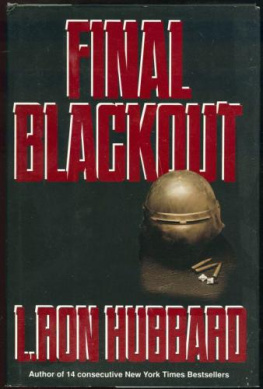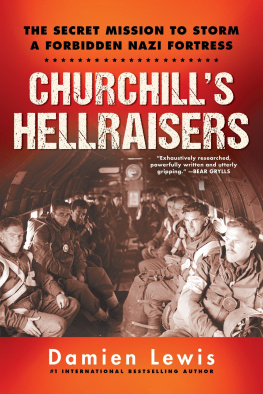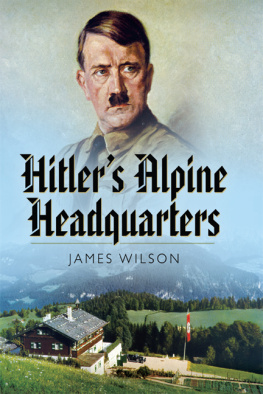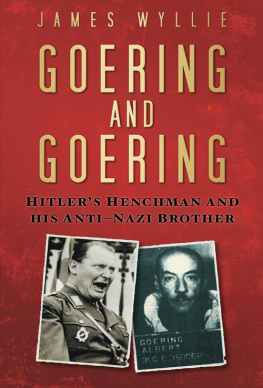La Fayette Ron Hubbard - Final blackout
Here you can read online La Fayette Ron Hubbard - Final blackout full text of the book (entire story) in english for free. Download pdf and epub, get meaning, cover and reviews about this ebook. year: 1997, publisher: Bridge Publications, genre: Detective and thriller. Description of the work, (preface) as well as reviews are available. Best literature library LitArk.com created for fans of good reading and offers a wide selection of genres:
Romance novel
Science fiction
Adventure
Detective
Science
History
Home and family
Prose
Art
Politics
Computer
Non-fiction
Religion
Business
Children
Humor
Choose a favorite category and find really read worthwhile books. Enjoy immersion in the world of imagination, feel the emotions of the characters or learn something new for yourself, make an fascinating discovery.
- Book:Final blackout
- Author:
- Publisher:Bridge Publications
- Genre:
- Year:1997
- Rating:4 / 5
- Favourites:Add to favourites
- Your mark:
- 80
- 1
- 2
- 3
- 4
- 5
Final blackout: summary, description and annotation
We offer to read an annotation, description, summary or preface (depends on what the author of the book "Final blackout" wrote himself). If you haven't found the necessary information about the book — write in the comments, we will try to find it.
Final blackout — read online for free the complete book (whole text) full work
Below is the text of the book, divided by pages. System saving the place of the last page read, allows you to conveniently read the book "Final blackout" online for free, without having to search again every time where you left off. Put a bookmark, and you can go to the page where you finished reading at any time.
Font size:
Interval:
Bookmark:
FINAL BLACKOUT
BY
L. RON HUBBARD
L RON HUBBARD BRIDGE PUBLICATIONS, INC. LOS ANGELES
FINAL BLACKOUT 0 1991 L. Ron Hubbard Library. All rights reserved. Printed in the United States of America. Earlier edition 0 1940 L. Ron Hubbard. No part of this book may be used or reproduced in any manner whatsoever without written permission except in the case of brief quotations embodied in critical articles or reviews. For information, address Bridge Publications, Inc., 4751 Fountain Avenue, Los Angeles, CA 90029.
FINAL BLACKOUT Dust jacket Artwork 0 1991 by L. Ron Hubbard Library
First Edition 10 9 8 7 6 5 4 3 2 1
Library of Congress Cataloging in Publication Data
Hubbard, L. Ron (Lafayette Ron), 1911 - 1986
Final blackout 1. Fiction, American. 1. Title ISBN 0-88404-651-6 (alk. paper)
The men and officers with whom I served in World War II, first phase, 1941-1945.
Final Blackout is an extraordinary novel featuring an extraordinary hero "The Lieutenant." The Lieutenant is unforgettable.
Fictional heroes come and go constantly in literature. They do their brave deeds, save the world, and usually are displaced by the next hero on the bookshelves.
In real life, the history of the world shows that mere victory is not what makes the memorable leader. George Washington is not honored for winning battles he lost more than he won but for establishing an enduring free republic in a world which up to then was almost totally ruled by rigid aristocracies. Winston Churchill fought for Britain in combat as a young man., but that isn't why he's a pivotal figure in the outcome of World War II ... or what most people think was its outcome. And Mahatma Gandhi, who never fired a shot, then defeated Churchill's victorious British Empire and thus changed the course of history.
More than anything else Final Blackout offers importance. Under its fast-paced scenes of combat, passions, treachery and grim endurance in a war that never stopped, is its carefully developed, totally authentic portrait of The Lieutenant not as soldier but as strategist. Not as a merely military strategist though to the end he sticks to his guns but as a statesman. There's plenty of adventure in this book. But what The Lieutenant's spectacular career embodies is a down-to-basics description of why the world can be changed, why it only rarely changes for the better, and what that can mean for you and me. The book is populated by characters who would have been historical figures in what we call the real world. But as depicted in Final Blackout, their struggles for power hit sharply home to those of us who usually just have to put up with whatever history is doing to us whenever it wants to.
That's why this book and its hero have never been obscured since its first publication in a magazine, why many thousands have been reading various small editions of it over the years, why it's famous among those readers, and why this new large audience edition was created in response to added thousands who had heard of it and wanted it. Like The Lieutenant, it's an "unkillable: FINAL BLACKOUT"
Its author is an extraordinary person. L. Ron Hubbard (1911-1986) wrote it during that strange, brief era when the then Prime Minister of England was still issuing assurances of "peace in our time" and Hitler and Stalin, surely the two most numerically successful killers in history, were temporarily dividing up Europe preparatory to failing on each other. Final Blackout reached its first publication, as a three-part serial in a magazine called Astounding Science Fiction. By then, its author was within months of going off to fight in what some call World War II, what others see as the inevitable continuation of World War I, and which some can reasonably claim has never really come to a conclusion.
Astounding was the leading science fiction magazine of its day, propelled into prominence among those readers by a remarkable gathering of fresh new creative talents. L. Ron Hubbard was among the earliest of those, and. in their first rank. Unlike his contemporaries who would eventually include Robert A. Heinlein, Isaac Asimov, A. E. van Vogt, and many other authors who are still legendary names in that field and beyond it Hubbard already had a powerful reputation in scores of popular fiction genres.
Years before his appearances in science fiction, he had begun as an adventure-story writer, and had then branched out to publish millions of words across almost the entire spectrum of newsstand fiction in its heyday. He was specifically brought in to lend the weight of his byline to the struggling Astounding, by its new publishers. Sales figures had convinced them L. Ron Hubbard's name on a magazine cover attracted thousands of added readers.
He quickly proved he could successfully transfer that magic to science fiction, and to fantasy in the sister publication Unknown. For his speed and productivity, and most important for his ability to deliver story after story that brought readers flocking, he almost overnight became a legend among legends. Some of his fellow authors even wrote stories in which he figured as a leading character, under thin disguises. All of them speak of him as a commanding figure, magnetic and full of gusto, standing at center-stage wherever these writers gathered in what has become known as the "Golden Age" of science fiction. He was a proven veteran of what was called "fictioneering," while most of them were yet novices ... and he was still in his twenties.
He was 28 when he wrote Final Blackout. He had already been the author of scores of impressive shorter pieces in the field, making himself swiftly at home in it. He had often demonstrated the ability to pioneer fresh approaches to this literature. But even for him, and even for Astounding, his first novel in that medium was a stunner.
A Preface he wrote for a postwar small-press book edition is reprinted here following this Introduction. It conveys the sense of the immediate reaction among science fiction readers and then the spreading, shockwaves of response from well beyond the boundaries of that readership.
With typical ironic humor, Hubbard "apologizes" for his naivet in world politics and his "youthful ignorance" of the high ideals that actually govern the leaders of society. As a satirical commentary, that Preface all by itself would make this book well worth attention. Almost uniquely among his mid-century writings, it conveys the tone of his ultimate science fiction magnum opus, the ten volume Mission Earth novel of the 1980s. In its own way, it's rife with uncomfortably prophetic overtones as Final Blackout is in its way. The "young," "naive" L. Ron Hubbard had a disturbingly apt way of cutting through the pretensions of those who claimed to know best.
The novel by the man who was readying himself for a major war was provocative reading, infuriating to some. So is the Preface produced six years later by the man fresh from that war ... or from a major episode in that continuing war ... and no less clear-eyed about what the future held.
It could easily be argued that Final Blackout did not belong in the pages of a "mere' science fiction magazine. Part of the initial impact on Astounding readers must have arisen from its expertise in military tactics, its confident grasp of strategy and, beyond that, of the chicaneries behind making war in search of political power.
Other writers in the field could write convincingly of "future war"; Hubbard's novel, however, had the ring of extra truth in countless details that none of his contemporaries could display. What's more, it was written from a level of political sophistication that was not hinted at again in speculative literature until George Orwell's postwar Nineteen Eighty-Four ... a work which, of course, was too serious to first appear as a "mere" magazine serial. (Frankly, Hubbard's offering of an optimistic solution seems preferable to Orwell's cumulatively hopeless list of reasons why no solution is really possible.)
Font size:
Interval:
Bookmark:
Similar books «Final blackout»
Look at similar books to Final blackout. We have selected literature similar in name and meaning in the hope of providing readers with more options to find new, interesting, not yet read works.
Discussion, reviews of the book Final blackout and just readers' own opinions. Leave your comments, write what you think about the work, its meaning or the main characters. Specify what exactly you liked and what you didn't like, and why you think so.







